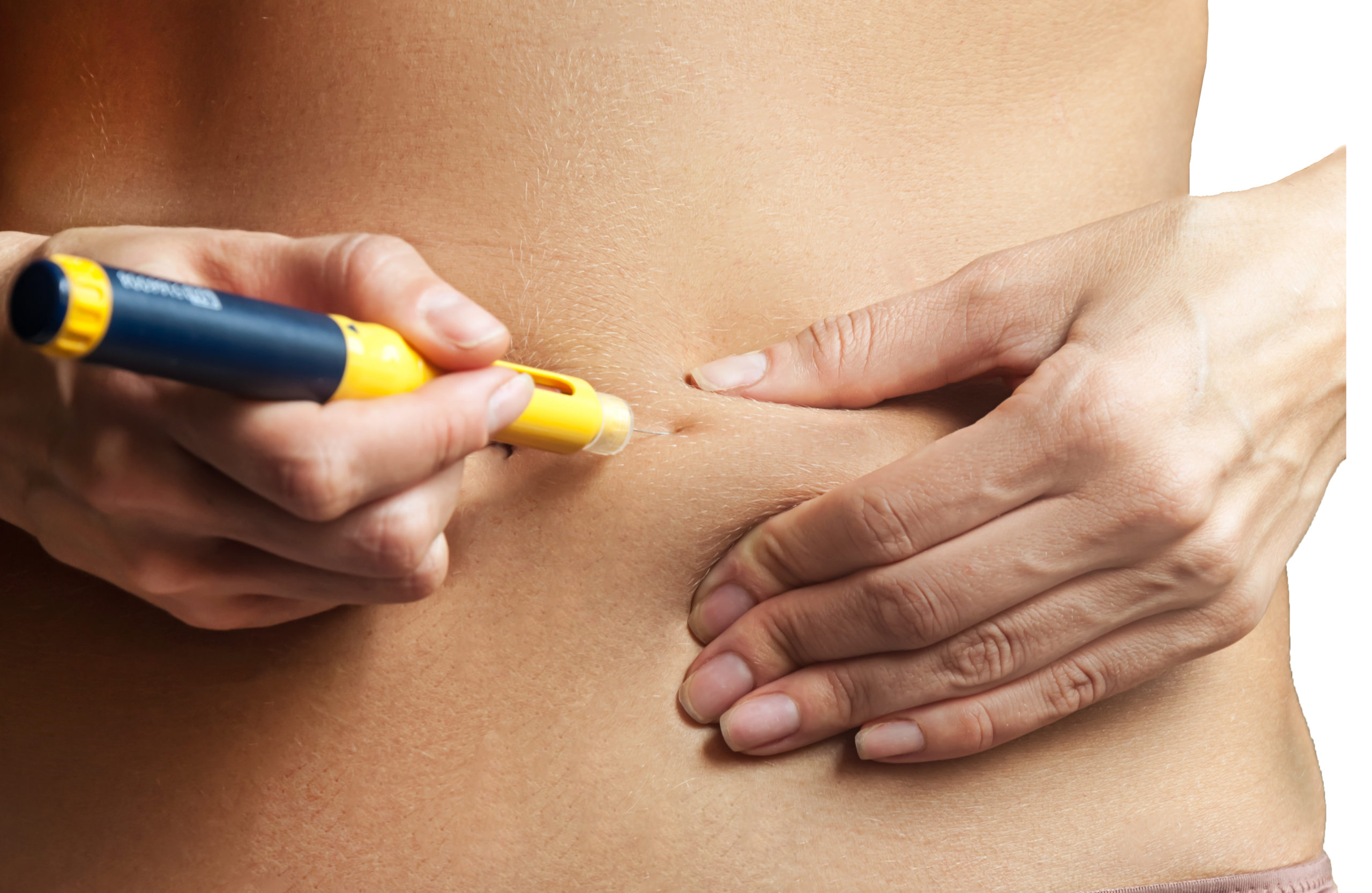
10 Nov What is the Trigger Shot?
There is a lot of information out there about the injectable fertility medications used to stimulate ovarian follicles to produce higher-than-normal numbers of mature eggs. The most common versions of these medications come in the form of the follicle-stimulating hormone (FSH), with common pharmaceutical names such as Bravelle, Fertinex, Follistim, and Gonal-F.
What we don’t talk about as often is the trigger shot that is used to officially release those mature eggs.
This shot is the final step in many fertility patients’ gonadotropic hormone therapy. Most often, it is administered as part of the IVF timeline so we can retrieve all of the mature eggs. However, these shots may also be used as part of less-invasive fertility treatment measures (more on that below).
Trigger Shots 101: The Basics
Here are some of the trigger shot basics you should know if injectable fertility medications are part of your fertility treatment plan.
1. Trigger shots release human chorionic gonadotropin (hCG)
Commonly referred to as the “pregnancy hormone,” hCG is what most home pregnancy tests are looking for to signify you’re pregnant. The hormone is produced in the body when it recognizes an egg is fertilized. As a trigger shot, however, hCG acts more like luteinizing hormone (LH), which is made in the pituitary gland right before you ovulate.
In this case, we administer more than the normal levels of hCG to get your body to release the multiple mature eggs waiting for release in your ovaries.
The shots are administered in your skin or muscle, and are typically self-administered. Your fertility specialist will work closely with you to learn more about how to administer injectable medications as well as tips for minimizing discomfort.
2. There are multiple brands out there
Ovidrel, Novarel or Pregnyl are some of the most common trigger shot brands.
If your fertility specialist feels you are at higher risk for developing a more severe fertility medication side effect called ovarian hyperstimulation syndrome (OHSS), s/he may prescribe a trigger shot called Lupron instead. Lupron is not an hCG (hormone) trigger shot. Instead, it uses an agonist (drug) that stimulates a response in your body using receptors.
3. Trigger shots are used for more than IVF
While trigger shots are always used as part of an IVF protocol, they are also used for other, less invasive forms of fertility support.
- Timing intercourse at home. If you would like to avoid IUI or IVF to start, we can time your menstrual cycle and use a combination of ovarian stimulation and a trigger shot to help you get pregnant at home. With this method, we monitor your follicles here in our office and when they’re ready (mature), we give you the green light for the trigger shot. You’ll time sexual intercourse from there.
- Intrauterine insemination (IUI). If you’d like to have a little more control over ensuring the sperm are in proximity to the released egg(s), we can also use trigger shots in conjunction with IUI. In this case, you’d administer the trigger shot and we’d schedule your insemination procedure for a number of hours afterwards.
Many couples prefer to use these options first, before pursuing IVF in the hopes they’ll get pregnant without it.
4. Who is a good candidate for a trigger shot?
The best candidates for using a trigger shot are those who aren’t ovulating regularly (or at all). Your doctor may also recommend the combination of fertility medications and a trigger shot if you have unexplained infertility (Click Here to read more about UI). And, as mentioned above, we use them for any woman participating in in-vitro fertilization.
Note about patients with PCOS: If you have PCOS, it’s important that you are very careful when using ovarian stimulating hormones to get pregnant. Many women with PCOS have a wealth of healthy eggs in their fallopian tubes. If your doctor isn’t careful about using the right fertility medication (typically the less-powerful, oral Clomid dose), at the right dosage, you can wind up with multiples via timed intercourse or IUI.
Also, it’s worth noting that some women who use fertility medications never use the trigger shot because they ovulate on their own with the assistance of the egg follicle boost. Fertility specialists always want to use a “less is more” approach to fertility treatments whenever possible. Whether or not your situation warrants the use of a trigger shot depends on your infertility diagnosis and ovulation history.
5. When should you NOT use a trigger shot?
There are also patients who should not use a trigger shot as part of their fertility treatment protocol unless the physician can make a very good case for it. These include women with:
- Primary ovarian insufficiency
- Low ovarian reserves
Also, if you’ve had a history of ovarian hyperstimulation syndrome (OHSS) or your doctor feels you’re a high-risk candidate, s/he’ll use Lupron rather than hormone-based trigger shots.
Are you in the process of researching fertility specialists who can help you get pregnant? Schedule an appointment with the Fertility Center or Dallas.






